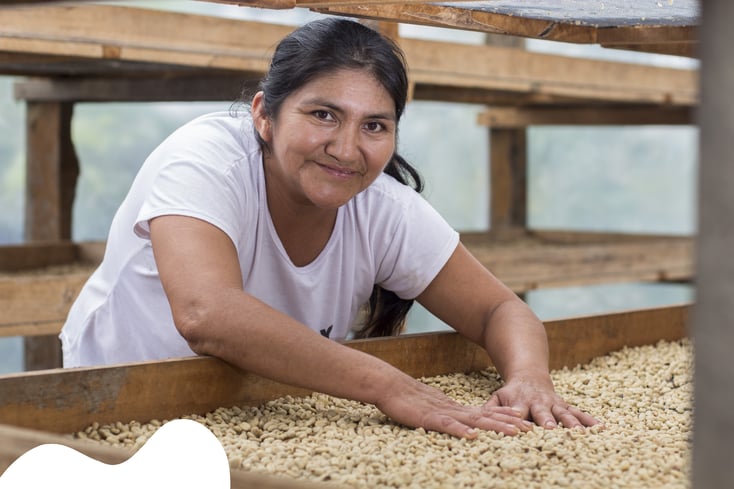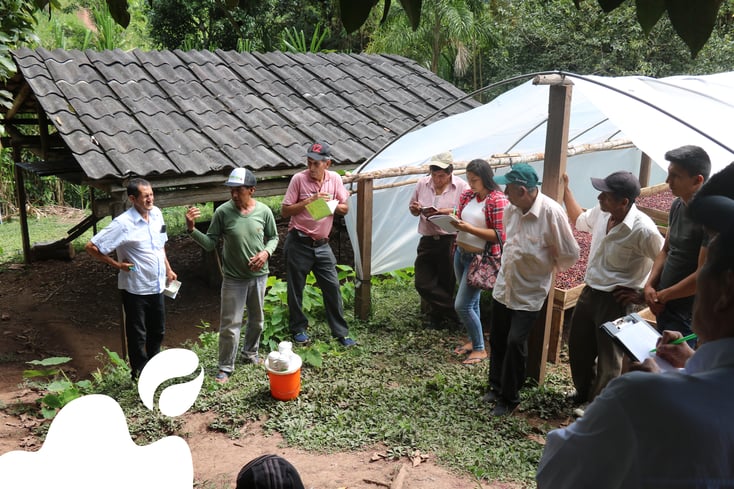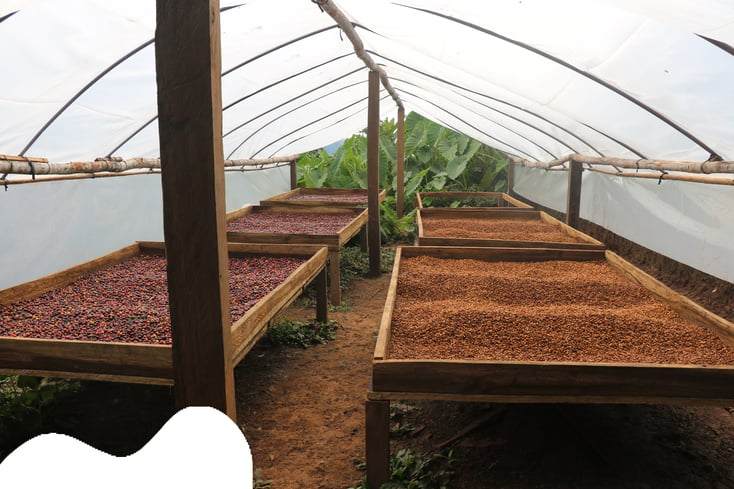
The coffee world has evolved immensely in the last few decades, largely driven by an increase in coffee consumption, with coffee lovers increasingly looking for better-quality coffee at their local cafés or to consume at home. While coffee-consuming countries may have led this trend, producing countries are undergoing their own changes as well.
At Sustainable Harvest, we see coffee growers investing in their lands, trying new processing techniques and varieties, and working hard to increase the quality of their coffees and their quality of life. Of course, coffee consumption in these producing countries is also rising, as you see more and more incredible roasters at origin!
We love listening to our partners at origin when they tell us how things have changed for them in the past few years, how their cooperatives and organizations have grown, and how their quality has increased. Some of the best stories have come from our partner producers in Peru. For this blog, we talked to a couple of our partners there about the coffee industry in Peru, the changes they’ve made to their farms, and some of their challenges and goals.
________________________________________________
Promoting healthy production and including the next generation
ASPROSELVANOR, based in Moyobamba, San Martin, Peru, was founded by a group of 50 coffee producers in February 2015. Since then, the co-op has grown to more than 529 members—136 of which are female coffee growers—and over 42% of its members are young coffee producers.
We had the chance to talk with Maricely Guevara and Nilser Benavides from the organization. Maricely told us about the co-op’s work with its women members, explaining that ASPROSELVANOR doesn’t just help them increase their coffee quality but also assists the women with projects such as building home gardens, which allows them to increase their income and provide food security for their families. Additionally, the co-op’s female associates formed a women’s committee, where members are trained to share their knowledge and experiences with other women.
In addition to working closely with its members on different social projects, the co-op supports them in implementing good agricultural practices on their farms. APROSELVANOR’s producers grow coffee under the Rainforest Alliance certification; in addition to this certification, the organization promotes organic agriculture among its members, providing them with training and consulting practices for each farm and visiting them every month.
Nilser says these certifications and practices require more work, but the co-op believes it’s worth the effort. APROSELVANOR is helping producers maintain information logs, where they enter relevant data about their crops for technicians to later analyze and suggest changes that could be beneficial. The co-op is also providing producers with an analysis of their production costs.
%20copy.png?width=734&name=RECOJO%20DE%20CAFE%20DE%20SOCIOS%20(1)%20copy.png)
Because taking care of the environment is one of the priorities at APROSELVANOR, the co-op prioritizes getting producers—especially from younger generations—involved and immersed in these kinds of topics. The co-op is providing different kinds of trees to its members to increase the biodiversity of their farms, looking for ways to lower their carbon emissions, and working to provide the best nutrients for their soil.
Maricely explains that APROSELVANOR is also training its youngest members to become technicians in their communities, allowing these producers to earn an extra income collaborating with the organization. The co-op made this move after only having four technicians for its more than 500 associates; the new technicians are helping APROSELVANOR reach all its members and provide proper training based on the co-op’s guidelines and standards.
APROSELVANOR is also promoting different ways for members to increase their income through different activities, such as coffee roasting—APROSELVANOR bought a 10-kilo roaster and is now training young coffee professionals to roast coffee to earn extra income and promote local consumption.
Innovating with the future in mind
Jose Rolando Gonzalez, general manager at Mishqui Huayo, started the cooperative a decade ago with the dream of doing something innovative that would bring better opportunities to his community. He says it hasn’t been an easy road—especially in recent years. “Until three years ago, we thought being sustainable would always be easy,” Jose Rolando explains, “but in the past couple of years, there have been times when I’ve thought about closing our doors.”
However, these challenging times have also encouraged Jose Rolando and all of Mishqui Huayo to work harder. “We haven’t stopped developing new projects and looking for ways to innovate,” he says, adding that they have looked to diversify the co-op’s income and develop other projects in addition to producing great coffee and working toward increasing the organization’s quality and volume.
“We are a small company, but a massive enterprise,” Jose Rolando says. Mishqui Huayo frequently seeks to find new markets, develop new sales strategies, and make the entire organization stronger and more consolidated. Like APROSELVANOR, Mishqui Huayo works to involve the younger generations of coffee pros in the organization, which Jose Rolando says has been key to its growth. Working closely with its farmers has also allowed the co-op to have full traceability and transparency of all of its coffee.

One of the early projects at Mishqui Huayo was to offer roasted coffee. The co-op was selling three or four kilos per month at first, but in 2015 some of the members traveled to Huila, Colombia, to visit producers, and they returned with ideas to improve the coffees and jumpstart the roasting operation. This included processing the coffees using experimental methods, investing in a quality-control lab, and instituting new sales and marketing strategies, including using a coffee cart to sell their roasted coffee.
The new processing methods, in particular, generated excitement among the co-op’s members. Jose Rolando says that implementing the new techniques in the region wasn’t easy, but the members dedicated themselves to the task: The co-op created a protocol and adapted it to each region and each farm, and worked with the producers little by little to gain their trust and buy-in on the project.
Jose Rolando tells us about one Mishqui Huayo producer who agreed to start introducing the new processing methods, but only on a small portion of his land. However, he soon grew excited at the new flavor profiles and the high quality of his coffee. Now he uses different processing techniques on all five hectares of the coffee he grows, and his coffee is not only exported but also sold locally as roasted coffee. Jose Rolando says he is now known as a “master” in processing around the community, and his success has led more producers to want to start experimenting with different techniques to increase their coffee quality and incomes.

Finding success
For both APROSELVANOR and Mishqui Huayo, increasing opportunities for associates and giving the new generation of coffee professionals different opportunities to develop themselves have generated great results. We at Sustainable Harvest are so excited to see this success, as we truly believe in providing opportunities and training to the next generation of coffee producers and industry professionals!
Fresh-crop coffees from Peru are arriving, and selections from APROSELVANOR are among our offerings. This co-op is moving in an exciting direction; please reach out to us to sample APROSELVANOR’s excellent coffees!



.png)
